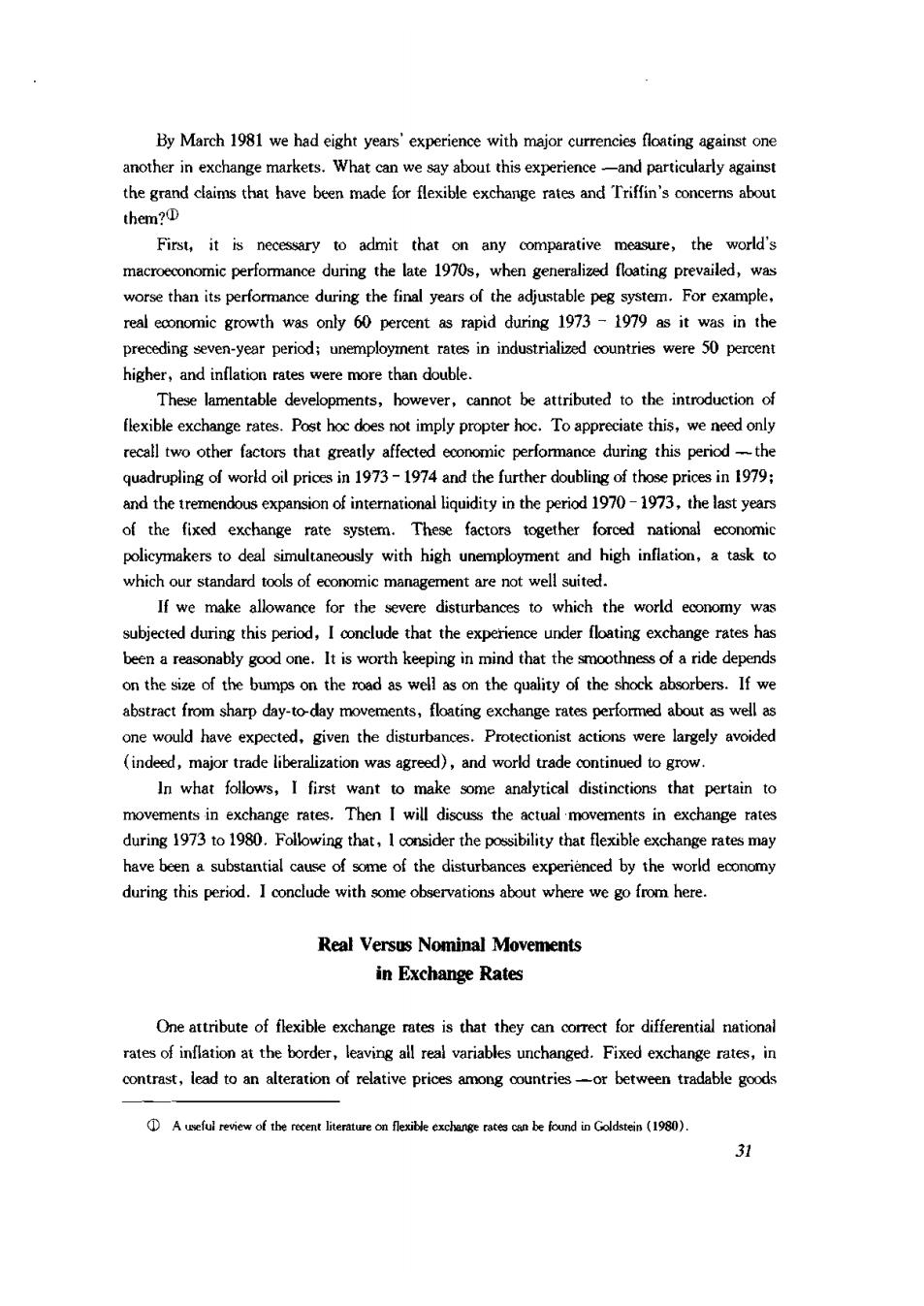正在加载图片...

By March 1981 we had eight years'experience with major currencies floating against one another in exchange markets.What can we say about this experience-and particularly against the grand caims that made for rates and Triffin'ne abou them?D First,it is necessary to admit that on any comparative measure,the world's performance during the late 19s,when generalid flating prevailed,was worse than its performance during the final years of the adjustable peg system.For example, real economic growth was only 60 percent as rapid during 1973-1979 as it was in the predingsven-year perid;in percen higher,and inflation rates were more than double. These lamentable developments,however,cannot be attributed to the introduction of flexible exchange rates.Post hc des not imply propterhc.this,weneed ony recall two other factors that greatly affected conomic performance during this period-the quadrupling of world oil prices in 1973-1974 and the further doubling of those prices in 1979; and the liquidity in the 1970-1973.the last years of the fixed exchange rate system.These factors together forced national economic policymakers to deal simultaneously with high unemployment and high inflation,a task to whichourstandard suited. If we make allowance for the severe disturbances to which the world economy was subjected during this period,I conclude that the experience under floating exchange rates has beena good one.It is worth keeping in mind that the smoothess of a ride depends on the size of the bumps on the road as well as on the quality of the shock absorbers.If we abstract from sharp day-to-day movements,floating exchange rates performed about as well as newould have expcted given the disturbances.avoided (indeed,major trade liberalization was agreed),and world trade continued to grow In what follows,I first want to make some analytical distinctions that pertain to movementsin exchange rates.Then I will discuss the actua movements in exchange rates during 1973 to 1980.Following that,I consider the possibility that flexible exchange rates may have been a substantial cause of some of the disturbances experienced by the world economy Real Versus Nominal Movements in Exchange Rates Oe attribute of flexible exchange rates is that they can correct for differential nationa rates of inflation at the border,leaving all real variables unchanged.Fixed exchange rates,in contrast,lead to an alteration of relative prices among tradable goods